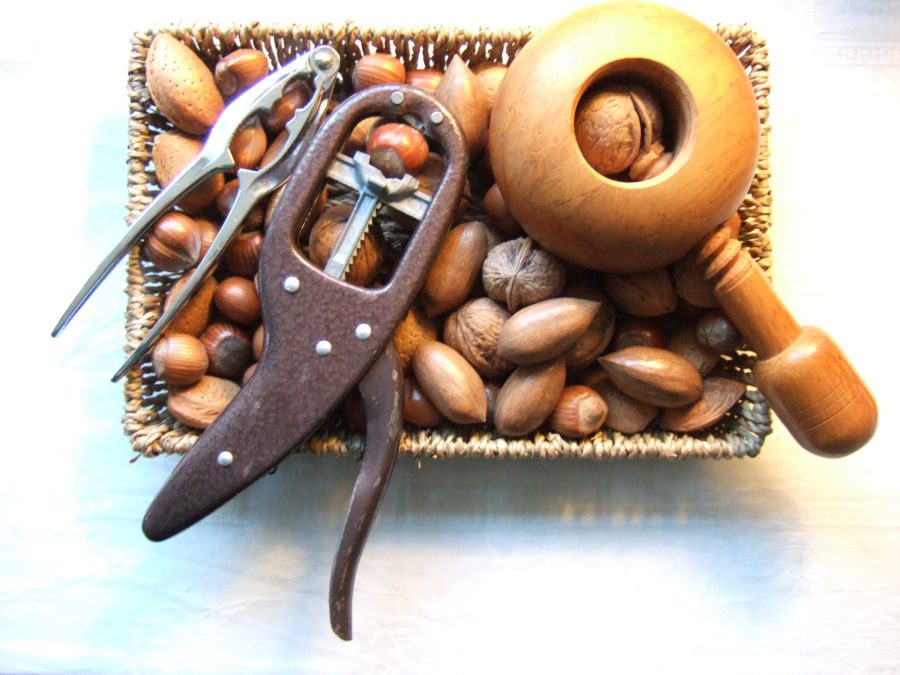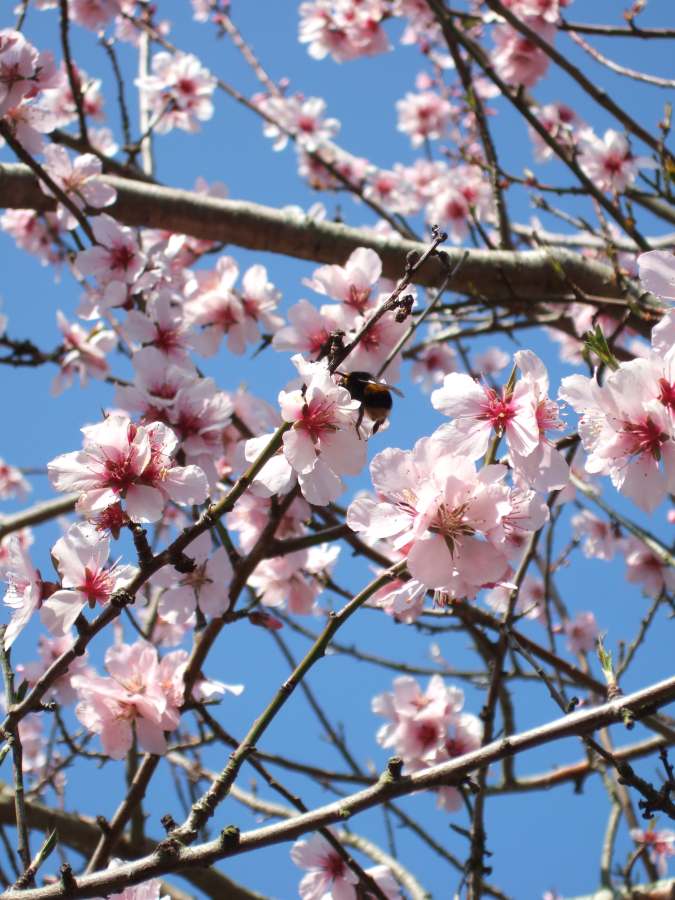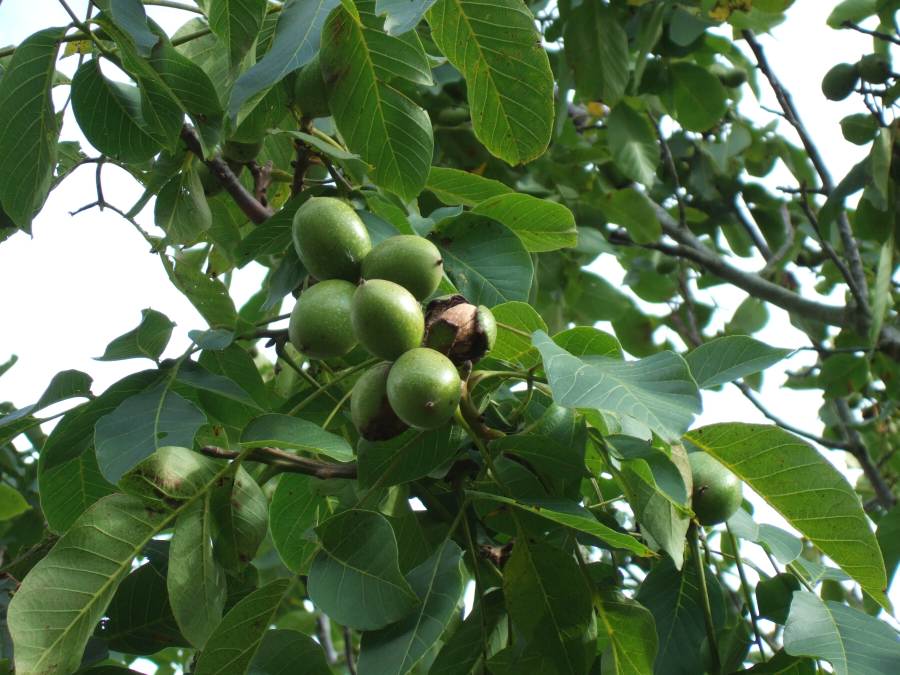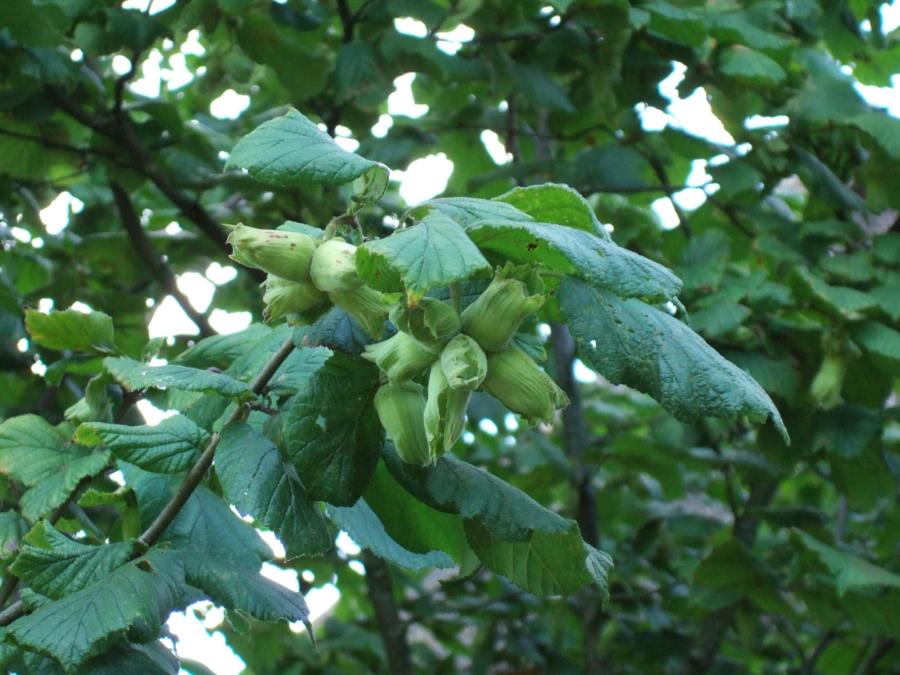Be a nutter
I’m a nutter. My family and friends have known that for years. But I’m not just your average common metaphorical nutter. No, I’m a common and a garden nutter. In my garden I grow nut trees. I eat the nuts. And it’s not just because I like adding walnuts to my stir-fries.
I’m a climate-friendly gardener, and ‘Make an orchard garden‘ is one of the things I keep going on about. When I say the word ‘orchard’ most people think I mean apples. Don’t get me wrong, nothing wrong with apples, or any other fruit. Here in Britain we’ve got the world’s biggest national collection of fruit trees at Brogdale in Kent, and I wish it had more recognition, better funding, and more land. Indeed I wish we had county collections of fruit and nuts in every county in the country.
But I think nuts are even more important than fruit.
‘Grow nuts and eat less meat and fish’ is one of my list of 57 things for climate-friendly gardeners to do. There are many reasons for growing trees in general, and many reasons for growing food plants in general. But one reason for being a nutter – growing nut trees and eating nuts – is because nuts are a tasty alternative to meat and cheese and other animal foods, and animal foods have a bigger impact on the climate than most plant foods. And eating fish may be good for human health, but wild fish are often being caught at unsustainable levels, and fish farming often causes even more damage (I recommend Callum Roberts’s book ‘The Unnatural History of the Sea‘ if you want to know more).
(And if you want to know more about food and climate, I’ve written about it here.)
Most people in Britain eat meat most days, and find it hard to imagine a meal without meat or fish or cheese or eggs. So if we can make meals with plants that are tasty we’ll find it easier to eat less meat. And nuts are not only very tasty, but rich in protein, which most people assume – wrongly! – is only found in meat.
There are many nuts which can be grown worldwide (see the Find out more pages for more information).
Here in Britain the main species we can grow easily are walnuts, almonds, and our native hazelnuts, though other possibilities include pine kernels, pecans, monkey puzzle nuts, and ginkgo nuts. (There are also our naturalized sweet chestnuts, though being rich in carbohydrate and relatively low in protein and fat they’re more suitable as an alternative to staple crops like cereals, rather than a high-protein high-fat alternative to meat, like most nuts.)
Hazels will grow almost anywhere, while walnuts will grow in most places but are better on moist but well-drained soils, and there are many suitable cultivars of both hazels and walnuts which will grow well here in Britain. Almonds and stone pines need relatively warm conditions, while pecans need more continental conditions and we don’t have enough suitable cultivars for British conditions – yet. Wouldn’t it be great if there were more breeding programmes?





 Climate-friendly gardening
Climate-friendly gardening